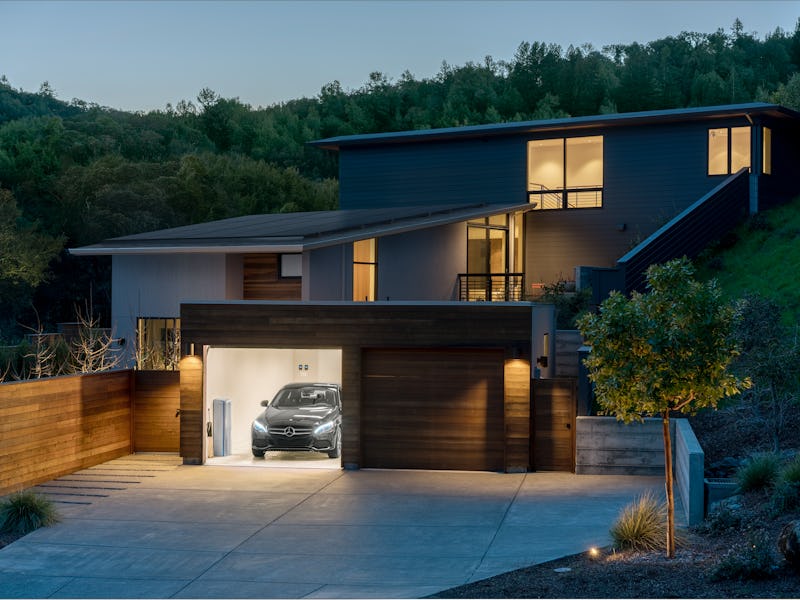On Thursday, the Daimler AG car company announced that it will sell home batteries in a partnership with Vivint Solar. Coming right after Tesla’s solar roof release, the move puts Daimler in direct competition with Tesla for the solar energy industry.
“Our goal is to empower consumers to take control of their energy production and use as much self-produced clean energy as possible,” David Bywater, CEO of Vivint Solar tells Inverse. “We want to provide our customers with the best residential battery on the market.”
The batteries will be sold through the Mercedes-Benz energy team starting now in California, and provide a storage option for homes with Vivint solar panels as well as a home charger for electric vehicles. The model is very similar to how Tesla sells Powerwall batteries in conjunction with its solar roof. Although the Mercedes-Benz batteries are not yet available in the entire United States, it’s a move that exemplifies the changing priorities of car companies towards electric vehicles.
“With batteries featuring the best in automotive engineering from Mercedes-Benz, and high-quality solar energy systems from Vivint Solar, our solution allows customers to take the next step toward a sustainable energy future,” Boris von Bormann, CEO of Mercedes-Benz Energy Americas said in the announcement.
The Mercedes-Benz batteries come in a range from 2.5 kWh to 20 kWh, with the 20 kWh costing $13,000 with installation, Bormann told Reuters. In comparison, a Powerwall battery is 14kWh and costs $7,000 with the lowest installation cost estimate. Right now, the home batteries are only available in California. Vivint Solar also only performs installations in 15 states (Arizona, California, Connecticut, Florida, Massachusetts, Maryland, New Hampshire, New Jersey, New Mexico, New York, Pennsylvania, Rhode Island, South Carolina, Texas, and Utah), so it doesn’t yet have the coverage that Tesla does.
However, it’s a bold move that suggests the entire industry is starting to move towards electric vehicles and clean-energy solutions. As customers purchase electric cars, having a home charger will become more important. And using solar power to charge a car has a serious impact on the cost of charging the car and energy costs overall. Mercedes-Benz recently announced that it plans on releasing 10 electric cars by 2022. And while it is the first to put Tesla’s business model directly in its cross-hairs, it is likely not the last company to move into energy storage and solar as a new business model.
